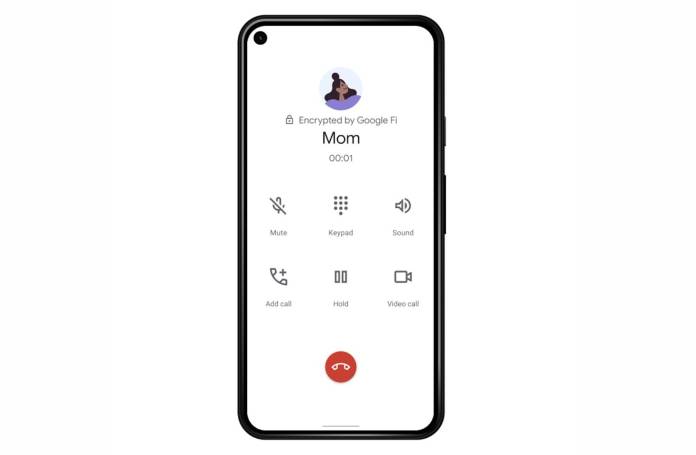
A couple of weeks ago, Google Fi says they will soon be rolling out end-to-end encryption for voice calls on their network. It looks like that day has come for those who are subscribed to Google’s MVNO telecom service. While there are a lot of messaging services that have E2E already, there are not a lot of networks that have the same encryption for phone calls. This means that your conversations will remain private between you and the person you’re calling.
Google announced on Twitter that all calls between Android phones that are on the Google Fi network will now have end-to-end encryption. There will be no server-side decryption which means they will not be able to collect data from the servers that are serving your phone calls. There doesn’t seem to be any additional steps required as this is a server-side update so as long as you’re using the network, you’ll automatically get it.
Your conversations, your business. 🔒
Starting today, calls between Android phones on Fi are automatically secured with end-to-end encryption. Conversations stay between you and the person you’re talking to, no additional action required.
Learn more → https://t.co/HuhJqSPgH0 pic.twitter.com/R4uwi4KA5J
— Google Fi (@googlefi) November 10, 2021
There are a few caveats for your calls to have E2E, including the fact you need to both be on the network. You need to be on either cellular or Wi-Fi connection and you need to be on a smartphone. This means calls made on computers cannot get the feature. It’s also limited to one-on-one calls so group calls are still not encrypted. Other details like call duration, phone numbers, time, and voicemails will not be encrypted.
You will see on your screen that you’re on a call that’s “Encrypted by Google Fi.” Since the encryption is automatically enabled, there doesn’t seem to be an option to disable it if you wanted to make phone calls that will pass through regular servers. Messages sent on Google Fi are also not encrypted but if you want to have that, you can always use Google Messages which already has E2E when you’re using its Rich Communication Services (RCS).
There’s no additional action required so by now, all Google Fi subscribers should have the encryption for voice calls already. Let’s see if this becomes a selling point for the network.









